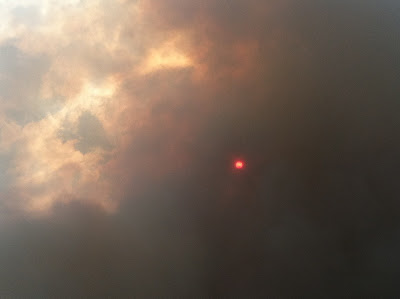The Rainy Bread: Poems of Exile, a poetry collection by Maja Trochimczyk has been enlarged by 30 poems and reorganized into six parts. An updated e-book is available. The book now includes 60 poems about forgotten stories of Poles living under the Soviet and German occupation during WWII, especially in the Eastern Borderlands of Kresy. They were killed, deported, imprisoned, or oppressed after the invasion of Poland by Germany on September 1, 1039 and by the invasion by the Soviet Union on September 17, 1939. Some of these brief portraits capture the trauma and resilience, ordeals and miraculous survival stories of the author’s immediate family. Their experiences of displacement, hunger, cold, and poverty during the war are typical of Polish civilians.
These fictionalized fact-based memories are coupled with depictions of survival of other Poles deported to Siberia, the Arctic Circle, or Kazakhstan; those left the Soviet Union with the Second Corps of the Polish Army under the command of General Władysław Anders; those who were transported to refugee camps in India or Africa; and ended up in Argentina, Canada, Australia or the U.S.
The book is a companion to “Slicing the Bread” (2014), with which it shares some poems, including vignettes from the author’s childhood in Warsaw. Organized into six parts - Destinations, Nowhere, Hunger Years, Resilience, There and Back, What Remains, the updated book follows a trajectory of descent into the hell of deportations, imprisonment, hunger, mass murder, and ascent into resilience and survival. The dark rain of sorrow changes into the diamond rain of delight with life.
Maja Trochimczyk, Ph.D., is a Polish American poet, music historian, photographer, and author of seven books on music, most recently “Gorecki in Context: Essays on Music” (2017) and “Frédéric Chopin: A Research and Information Guide” (co-edited with William Smialek, rev. ed., 2015). She currently serves as the President of the California State Poetry Society, managing editor of the California Quarterly, and President of the Helena Modjeska Art and Culture Club in Los Angeles, promoting Polish culture in California. Trochimczyk’s nine books of poetry include “Rose Always,” “Miriam’s Iris,” “Slicing the Bread,” “Into Light”, and four anthologies, “Chopin with Cherries” (2010), “Meditations on Divine Names” (2012), “Grateful Conversations: A Poetry Anthology” (2018) and “We Are Here: Village Poets Anthology” (2020). This is her ninth poetry collection.
SAMPLE NEW POEMS
≡ PANI BASIA ≡
~ in memoriam Barbara Wysocka, “Irma” soldier in the Warsaw
Uprising, prisoner of Stutthof Camp (1927-1997)
Who was this stranger at Christmas Eve dinners?
A tall, stern lady who did not smile or talk to children.
Distinguished. Distant. Too stiff for hugging.
She looked at us as if from another planet.
She ate her food slowly, methodically,
relishing each sip of the hot beet soup,
gingerly picking fishbones out of carp in aspic.
An aura of loneliness spread out around her.
Why did Mom take her for vacation to Abu Dhabi,
on an exotic adventure, to see red sands, palms, camels?
The answer waited for decades in packets
of old letters, medals earned during the war.
She was “Irma,” a teen liaison for Division Baszta
in Mokotów. Fought to the end, Warsaw’s fall.
Imprisoned in the Stutthof Concentration Camp.
Her whole family perished. All alone.
Never married. Wrapped in her grief
like a cashmere shawl.
On her vacation in Persian Gulf, she saw
wobbly camels race – and finally laughed.
≡ THIRTY SIX ≡
The number is thirty-six. Not thirty and
Not thirty-seven. Thirty-six. That’s how many
lives they saved, sheltering them in secret, finding
more food, more clothing for the ghetto escapees.
Doctor Alicja and Mr. Marian Burakowski at your service.
Unsung heroes, nearly forgotten, except for
that tree planted in Yad Vashem’ garden in 1983.
Righteous among the Nations. No. 2480 on the list
of the bravest people the world has ever known.
Think of the sheer audacity of what they did.
The number is thirty-six. Not thirty and not thirty-seven.
How many Jews would you have saved, if your own life,
and that of all your children, your whole family, were at stake?
Germans declared a mandatory death sentence,
for this crime, if caught.
Do not forget their names, then, Alicja and Marian
Dr. and Mr. Burakowski at your service.
The number is thirty-six.
≡ THE GREATEST SONG ≡
~ for Hanka Ordonówna, a humanitarian star (1902-1950)
Miłość Ci wszystko wybaczy… Love will forgive you everything. . .
The refrain of Poland’s most famous song
echoes through her memory, as she listens
to the stories of war orphans – covered in
wounds and lice, starved to skeletons, yet
finding time to play. They asked her to sing.
Ordonka, she used to be in another life,
on a different timeline, another planet, perhaps –
its very existence impossible to believe in, here
on the train with orphans, on the way to a refugee
camp in India – in a coarse military uniform instead
of silks, pearl strings, shawls, and ostrich feathers.
Champagne for the greatest star! Balls and revues
for the beloved singer of perfect Love! Such charm!
She found refuge in Beirut, her final stop, Paris
of the Levant. There was no Poland to return to, after
Stalin’s tanks rolled in to stay for 45 years. She did not
make it. She did not feel like wearing silks, feathers,
pearls – after the orphans that survived their odyssey
went somewhere else to become someone else – not
her lost Polish children, smiling with delight as she sang.
Miłość ci wszystko wybaczy… bo miłość, moj miły, to ja!
Love will forgive you everything. . . for Love, my dear, I’m Love!
NOTE: Read a summary of her story by Irene Tomaszewski, "The Cabaret Star and the Orphans: From Warsaw to India" Cosmopolitan Review, vol. 5 no.2 (June 2013). http://cosmopolitanreview.com/hanka-ordonowna/
≡ A PILOT IN PAKISTAN ≡
~ for pilot Zofia Turowicz (d.1980)
She learned to fly to have wings —
to look down at the rolling waves of mountains,
the geometry of fields outlined by rivers,
dotted by lakes. She longed to see where clouds
were born, and where they were going.
Today, she teaches soldiers of a foreign army
how to fly and kill, kill and fly away, unharmed.
They call it the dogfight, as in, dog
eats dog, the bigger dog,
the faster dog, the dog
with sharper teeth.
The dogs of war.
Six years was enough.
Enough of this war.
She lost her home, her house, her childhood.
She has no future. Alone, wearing blond curls
and the tight, belted uniform of a pilot
she’s teaching soldiers in a Muslim country
how to fly to war.
NOTE: Pilot Zofia Turowicz was the wife of Władysław Józef Marian Turowicz (1908-1980), commander of about 30 Polish pilots that trained the newly formed Pakistani Air Force since 1948. He remained a PAF officer, and became the founder of Pakistani space program. https://www.compasstravelguide.net/curiosities/the-polish-pakistani-air-force/



























